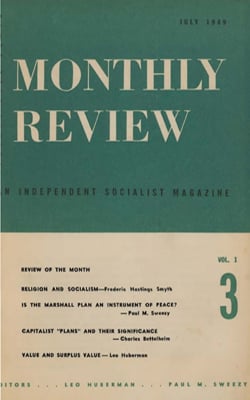America’s Education Deficit and the War on Youth
$17.00 – $85.00
Read an excerpt, “Violence, USA,” in Monthly Review
Read an excerpt, “Challenging Casino Capitalism and Authoritarian Politics in the Age of Disposability,” and an interview in Truthout
America’s latest war, according to renowned social critic Henry Giroux, is a war on youth. While this may seem counterintuitive in our youth-obsessed culture, Giroux lays bare the grim reality of how our educational, social, and economic institutions continually fail young people. Their systemic failure is the result of what Giroux identifies as “four fundamentalisms”: market deregulation, patriotic and religious fervor, the instrumentalization of education, and the militarization of society. We see the consequences most plainly in the decaying education system: schools are increasingly designed to churn out drone-like future employees, imbued with authoritarian values, inured to violence, and destined to serve the market. And those are the lucky ones. Young people who don’t conform to cultural and economic discipline are left to navigate the neoliberal landscape on their own; if they are black or brown, they are likely to become ensnared by a harsh penal system.
Giroux sets his sights on the war on youth and takes it apart, examining how a lack of access to quality education, unemployment, the repression of dissent, a culture of violence, and the discipline of the market work together to shape the dismal experiences of so many young people. He urges critical educators to unite with students and workers in rebellion to form a new pedagogy, and to build a new, democratic society from the ground up. Here is a book you won’t soon forget, and a call that grows more urgent by the day.
Henry Giroux interviewed by Bill Moyers
There is an awful lot to contemplate here but all is relevant and compelling, making this an excellent introduction to the author’s general project … one of those explosive little books that might spur you to buying multiple copies in order to leave on the bus or on the coffee table in the office or teachers’ lounge.
—New Politics
Giroux has written a compelling critical discourse analyzing the present crisis of democracy. We can only hope it will become a manifesto, taken up by an informed and energized citizenry—ready to act.
—Carol Becker, Professor of the Arts and Dean of the School of the Arts, Columbia University; author, Thinking In Place
This is classic Giroux in the sense that it contains all the passion, empathy, and righteous anger that we have come to associate with Henry Giroux. Impressive in his unflagging commitment to a public pedagogy that creates, sustains, and expands our discussions of what it means to be a citizen and member of a world community. Among so many strengths, I would single out this book’s attention to the youth of the world—not as ‘resources’ to be ‘developed’ and ‘trained,’ but as our best hope for a just world.
—David Palumbo-Liu, author, The Deliverance of Others: Reading Literature in a Global Age
From Mobil/Exxon to the two presidential candidates, everyone has a cure for the ills of education, but as usual Henry Giroux sees the truth behind the rhetoric. Stop stealing the future from our young people, especially in the working class. Unable to get decent educations, chained to dead-end jobs, our young people are the targets of state-sponsored violence. Giroux knows personally this situation; this book is his intellectual autobiography. Listen to him and act.
—John Carlos Rowe, University of Southern California
Giroux offers a compelling primer for the chaos that neoliberalism has wrought on our youth and education system. Giroux writes with passion that borders on poetic. And, unlike a lot of critical theory, the book is intelligible and easy to read. It would make a welcome addition any OWS-style people’s library or intro-level college class.
—Critical-Theory.com
Henry A. Giroux is a social critic and educator, and the author of many books. He currently holds the Global Television Network Chair in English and Cultural Studies at McMaster University, Ontario.
Publication Date: April 2013
Number of Pages: 224
Paperback ISBN: 9781583673447
Cloth ISBN: 9781583673454
eBook ISBN: 9781583673461
Related products
-
Monthly Review Volume 2, Number 8 (December 1950) [PDF]
$10.00 Add to cart -
Monthly Review Volume 2, Number 4 (August 1950) [PDF]
$10.00 Add to cart -
Monthly Review Volume 2, Number 3 (July 1950) [PDF]
$10.00 Add to cart -
Monthly Review Volume 1, Number 9 (January 1950) [PDF]
$10.00 Add to cart -
Monthly Review Volume 1, Number 5 (September 1949) [PDF]
$10.00 Add to cart -
Monthly Review Volume 1, Number 3 (July 1949) [PDF]
$10.00 Add to cart

 [PDF].jpg)
 [PDF].jpg)
 [PDF].jpg)
 [PDF].jpg)
 [PDF].jpg)
